PHOTO by Anne TIMMER. ARTORY Founder and TEFAF's Chairman Nanne DEKKING wandering under the RIJSKS MUSEUM.
An advocate for change in the art market, Nanne DEKKING is the CEO and Founder of ARTORY in New York and Berlin. ARTORY works to provide a much required and urgent need in the art world: transparency in the art marketplace. ARTORY’s core product, the ARTORY’s Registry, is a secure, digital registry of verified information about artworks and collectibles, and their history. The company has recently raised over 8 million Dollars to accelerate its development (Amongst its investors, 2020 Ventures - backers of Spotify - and HASSO PLATTNER Capital, the investment firm of Hasso PLATTNER, the German businessman co-founder of SAP).
Since 2016, Nanne DEKKING has also been the new Chairman of TEFAF (The European Fine Art Foundation) with the ambition to turn TEFAF into a powerful Art Community, and, in line with his ethos of transparency and trust, placing an emphasis on the vetting process of the artworks displayed at the fair by the most reputable art experts in the world. TEFAF hosts an annual art fair in Maastricht, Netherlands, and, as of early 2016, at the Park Avenue Armory in New York (One in Spring and one in the Fall).
Prior to starting ARTORY, Nanne DEKKING has held various prestigious positions as a respected art dealer, under his own name first as a Founder of NANNE DEKKING FINE ARTS and later as Vice President of WILDENSTEIN & Co, one of the world’s leading art dealers where he advised individuals, museums and Foundations on the formation of their collections. His latest role was as Vice Chairman and Worldwide Head of Private Sales at SOTHEBY’s.
After graduating from the University of Amsterdam, Nanne DEKKING held numerous distinguished positions including Deputy Administrative Director of the Dutch National Ballet. He started his career as Assistant Curator of the Historical Collections of Her Majesty the Queen of the Netherlands.
Florian DAVID: Dear Nanne it is a great joy to welcome you here today on ZEFYR LIFE for this exciting, in person, face to face conversation in beloved Paris. We are now at the Hotel National des Arts et Métiers, a beautiful and cosy place, by the way! Designed I believe by Raphael Navot.
I say it is a great joy to have you with us, firstly because you are an independent, free spirit, a visionary, a change maker - some would say ‘an agent of Change’. You have clearly been identified as such by the other players in the art world. You are a risk taker - you just left a full time comfortable position at Sotheby’s to launch your own new venture, ARTORY - and lastly, you do what you say you are going to do, which is increasingly rare and refreshing in today’s day and age! You are a doer. Clearly, you are acting in accordance with your moral principles.
The last thing I will say and the main reason you are here – a prerequisite for us before we invite anyone on ZEFYR LIFE – is that you do genuinely care about the world. The way you lead and live your life is not conventional. You have a big heart and this is the type of people we are gathering here with us through ZEFYR LIFE, which is also a Community. So thank you again for being with us today.
Nanne DEKKING: Thank you!
DAVID: Let’s get started! I was re-reading a book that I had read around 1996 by French writer, philosopher, environmentalist and screenwriter Alain MAMOU-MANI whom I met this morning, titled ‘AU-DELA DU PROFIT'. How to Reconcile Woodstock and Wall Street’ (‘BEYOND PROFIT. How to Reconcile Woodstock and Wall Street’ Published with ALBIN MICHEL back in 1995). This was about the time when I met for the first time French Activist Priest L’ABBE PIERRE who has been fighting homelessness throughout his life (Founder of EMMAUS) and whom I was lucky to meet a few other times after that. There is a foreword in that book, by a Belgian Author and philosopher called Raoul VANEIGEM, are you familiar with him?
DEKKING: Actually no [smile].
DAVID: VANEIGEM wrote a book titled ‘ The Revolution of Every Day Life’, basically outlining how the real revolution has to start within our every day, individual lives, and the way we live them. He talks about being ‘bio-actors’. He says, I read: ‘Never before has a civilization reached such a degree of a contempt for life; never before has a generation, drowned in mortification, felt such a rage to live.’
I am interested to know how you feel about this quote?
DEKKING: This is quite a statement! This is quite a statement! It is very much a statement that resonates in a way. I often wonder why do I or why do we, or the people that I actually enjoy spending time around, want to live, and why we are so positive about our lives. Because there would be so many reasons for people to never be positive about life. And I actually think that it has to do with the generation that raised us.
Just one generation before us, my parents, have gone through a lot. Don’t forget they were young during the Second World War and my parents were raised in different parts of the world and with different histories: my Father was Dutch, he was very young when the Second World War started and he actually enrolled at the end of the war when he was still very young - he must have been sixteen or seventeen years old at the end of the war. He swam to the other side of the river, to where the Americans and the allies forces already were in occupied Holland because he wanted to join these people and he wanted to be a part of the Forces that liberated Holland.
DAVID: So he enrolled in the army, just like that?
DEKKING: He just escaped from his parents. He just left the house.
DAVID: Wow.
DEKKING: And he swam across the river, which was quite dangerous, to be with those forces that were starting to liberate Holland.
DAVID: So a little bit like Curzio MALAPARTE? [who even though he was Italian also enrolled very young in the French Army, he must have been about sixteen too]
'EVERYBODY IS A HERO BECAUSE EVERYONE FIGHTS THEIR OWN BATTLES.'
DEKKING: I wouldn’t compare himself to MALAPARTE, my father does not perceive himself as a hero. In the end most people say they are heroes - or not - I do not like the word Hero. Everybody is a hero because everyone fights its own battles. So I would never call my Father a hero, he is just curious so he fled his family, he wanted to see what was going on. His mom was incredibly worried because he left the house and she only saw him back after the Second World War ended, when the allies forces came into Holland to liberate our country. So of course the allies forces did not trust him, because they did not trust anyone who came from the occupied zone as they could have been spies. Anyways, I wanted to mention it because I find it so interesting that someone did that.
And then my mum was raised on the other side of the world in Indonesia, a former Dutch Colony. When the Second World War started and the Japanese invaded and conquered Indonesia – ‘The Dutch Indonesia’ you called it in those days - she completely identified herself as Indonesian because her family - they were Dutch colonizers so to speak - had been living in Indonesia for four generations so she never felt Dutch! And then the Japanese invaded Indonesia and she got incarcerated! Sent by the Japanese to a concentration camp, together with her mother and her sister.
DAVID: A concentration camp?!
'I REALLY UNDERSTAND NOW THAT LIFE IS ALL ABOUT IDENTITY.'
DEKKING: Yes, by the Japanese, just because she was Dutch, whereas she really identified as Indonesian! So first she was perceived by Indonesian’s invaders as having an identity that she actually did not feel she had - they incarcerated her as Dutch when she never identified as such - and after the Second World War when they got liberated from the concentration camp, Indonesia became independent and the Dutch were kicked out of Indonesia! So all of a sudden she had to move to a country she did not really know. She had to move to Holland, and yet she did not identify as Dutch!
And then two people meet: my Father and my Mother. One of them had the curiosity and the strength to say there is something happening `I want to be a part of it’ - so while not wanting to label him a hero, someone who nonetheless did something heroic in a way. And this other person [My Mother] who had a completely different life story, who was perceived to have been on the wrong side of history by forces who occupied a country, and yet again once Indonesia liberated itself as a colony - and how can you be against that of course! She was indeed on the wrong side of history - as one of the descendants of people who had formerly colonized that country. So as I said earlier she was kicked out of that country. And of course you do not realize all this when you are a child, and only now, at fifty-nine, am I starting to put one plus one equal two together: all that must have defined me. I really understand now that life is all about Identity. All about who it is that you are. And uncertainty about identity defines you. And I think that a lot of things in my life have happened because of that.
And then of course there was another factor, I found out that I was gay.
DAVID: How old were you?
DEKKING: Oh, most gay people tell you they found out when they were twenty [smile], but I found out much earlier in my case. And I just started to admit it to myself much later that it was true.
DAVID: But you must have felt this from when you were about six years old already?
DEKKING: Something like that.
DAVID: Yes.
'I AM TOUGH IN LIFE. I HAVE NO PATIENCE FOR WHINERS'
DEKKING: Yes, so that is another thing. That was another struggle with identity. Not my [inherited] struggle from my mother, but my own struggle with identity. And now, if you fast-forward: My husband Frank [LIGTVOET] and I decided to adopt children. And the children are African Americans and you also realize that these children need to identify themselves as African Americans. I do not want to do to these kids what happened to my mother. I do not want to be doing to these kids what happened to me, as I was living in an environment where everybody seemed to be different from me. So I think identity played a big role in my life. And if you allow yourself to realize that, what else can be a bigger challenge than that?
I am tough in life, I have no patience for whiners. No patience for colleagues complaining about their jetlag [laughs]. I hate that. I always respond ‘Well, let’s not talk about your jetlag, why don’t we talk about something else?’ [smile] So I can imagine that I am not always easy to deal with at times. [Laugh]
DAVID: You do not suffer fools gladly, is that how they say? [smile]
DEKKING: Yes, but not even fools, because I do always understand things. I just mean come on, let’s put things in perspective.
DAVID: Indeed. In the train today I just finished reading the life of Simone Veil [Holocaust survivor, French lawyer and politician who served as Minister of Health under Valery Giscard D’Estaing, President of the European Parliament and member of the Constitutional Council of France. She was given a National Funeral and now rests in the Pantheon]
DEKKING: My gosh, Simone Veil. Yes. Let’s put things in perspective. And I have to say that gave me strength, because in life there are no straight paths for nobody, and I learned to take it as it is - you can learn a lot in life - I am actually enjoying life thoroughly while I also realized that it is very tough.
DAVID: And you are enjoying it more and more it seems.
DEKKING: Absolutely. I really believe that turning fifty was sort of the turning point. Things start to fall into place; you realize that you have had experiences that could help you. You have had personal experiences, you have scars, but scars heal and it creates new tissues.
DAVID: I read an interesting note lately. We always hear this cliché ‘Time heals all things’, you know? But that man said no, ‘YOU heal things. YOU heal yourself’. Time does not heal anything. YOU have to work on it yourself.
DEKKING: And it does not even heal, right? What I think is, what really happens to wounds, is that they create something new above them. They never heal; they are always there, which is good. Otherwise in fact it means that you are simply entering a process of denying things. No, the wounds are there and the wounds won’t disappear.
DAVID: I hate words sometimes, because they make us feel so limited and they are indeed so limitative. But to get back to your sexual identity: ok, I understand that around six you start realizing that you are more attracted to boys, and later on, at whichever age it might have been, seventeen or twenty, you admitted it to yourself. As I often like to say: ‘Do we exist if no one is watching?’ Was there any immediate understanding from your parents or was that an issue? How did this go?
DEKKING: No there was no understanding at all! In my case it was more about creating my own fantasy world. And I think that many gay people from my generation did that, right? I wish I had had a real secret life, that I would have been courageous enough to live that secret life, but no. Instead I was drawing houses, I was basically drawing and creating a life that I wanted to lead, but I was keeping it very much to myself. And it was not before I turned twenty-two that I started to discover things. With me that was very much in synch with meeting my current partner, Frank. We met when I was twenty-two.
DAVID: Yes you two – you and Frank [LIGTVOET] met very early in your life when you think.
DEKKING: Yes [smile] I was twenty-two.
DAVID: How do you pronounce Frank’s last name? LIGTVOET? [smile]
DEKKING: Yes. You say ‘LEEGFOOT’ [smile]
DAVID: He is a journalist?
DEKKING: Yes. I those days he was actually still a student. I was at the end of my first year in my law studies meaning that I had never passed one exam meaning that I was not really at the end of it but I was at the end because I had to stop and he was at the end of his studies. He studied Dutch literature and Germanic languages.
DAVID: Wow. We will come back to Frank a little bit later. Let’s start exploring another area of your life.
So at the beginning of your professional career, you were the Business Development Director for the National Dutch Ballet. What did you take away from that specific experience, and do you feel as if it is our duty to dance through life? [smile]
DEKKING: [Big Laugh]. I will come to that but let’s go a few steps back. I first started art history, which was quite courageous because that was definitely not the wish of my father…
DAVID: What did he have in mind for you?
DEKKING: Law School!
DAVID: Law School! Was he a lawyer?
DEKKING: No he was a Navy Officer. And because of the war it turned into a military career.
DAVID: Tough man?
DEKKING: Tough guy. Very tough. Yeah, very though guy. And my mum had actually a career as a dancer so the only culture I knew was dance, and so she would take me to dance performances, which I actually hated but in hindsight I am actually happy that I saw that. I saw Merce Cunningham when he came to the Netherlands in the sixties. I forgot the name of the choreography, you only see him on stage [alone] with a chair and as a child this is the most boring experience! But for me to actually remember that I actually saw that performance is now very special. And when we moved to New York in 1996 we went to a fundraiser and the first thing we saw was actually Merce Cunningham at that very old age who did ten minutes of that choreography at the fundraiser! And all of a sudden it went full circle right? I pictured myself sitting next to my mum when I was twelve watching that performance, and here I was, thirty-six years old now, living in New York, and I see Merce Cunningham, performing, in New York, the same performance!
DAVID: Amazing. A fundraiser, do you remember for what Cause?
DEKKING: Yes for the Saint Mark’s Dance Space. It is a wonderful dance space in an old church. So what happened was that I quit Law School and I studied art history. The first year I did not tell my dad, and later I told him that I studied art history only once I had very high grades from that first year.
DAVID: You said ‘look what I have achieved, here it is!’ [laughs]
DEKKING: Yes! [laughs]. The good news is I have amazing grades from University. The bad news is it is from Art School, not Law School! [Laughs]
DAVID: [Laughs]
DEKKING: I have to say he took that well. So I finished Art History and then my first job was working for the Royal Dutch Family as an Assistant of the curatorial staff. I made, not a real printed catalogue, but a working catalogue for the portraits collection that they owned and then my job became a little bit more managerial and less art historical. And before I left New York my job was for two and half years as Deputy Administrative Director of the Dutch National Ballet.
'I DONT' THINK THAT LIFE IS A DANCE. (...)
LIFE IS A VERY COMPLICATED CHOREOGRAPHY'
Regarding the other half of your question: ‘Should we dance through life?’ Not really. I don’t think that life is a dance, it’s a little bit more complicated than that. Life is a very complicated choreography I would say. But what I really learned at the Dutch National Ballet is what it means to be a performer. Also what I really enjoyed there - I was actually with the administrative staff - nobody in the office was ever sick! In any other corporation when you work in an administrative environment people are always sick, many people get the flu etc. If you work with dancers, who always perform, I mean, you may be coughing but you are never thinking ‘I am staying home’! The determination of these performers, to always be there, to be in physical shape, actually had such a positive effect on the rest of our staff.
DAVID: Showing up, no matter what.
DEKKING: Showing up no matter what. And what I discovered there is that I had a huge love for classical ballet. I say I discovered because my mother was not into classical ballet.
DAVID: What Company was she a part of?
DEKKING: She danced with Kurt Joos, the German choreographer, for a while.
DAVID: Oh, so really high level art.
DEKKING: Yeah, pretty high. But she stopped dancing when she met my dad so I never saw my mother dance.
DAVID: Where you afraid of your dad? Was fear present in your interactions, or a form of respect?
DEKKING: I was not afraid of him but I always felt that I failed. I was not afraid [of him] but I was always afraid that I was doing the wrong thing. I was not good at sports for example!
DAVID: Because of our accents sorry I did not understand first, you felt that you always ‘failed’? I see! That you were never good enough?
DEKKING: Yes I always felt that I was not good enough.
DAVID: I have experienced this in my own life at times, you know. I think that is very common between fathers and sons. I just finished one great book. It is titled ‘Shoe Dog’. It is the autobiography of Phil Knight, Founder of Nike. Pretty fantastic, moving read. I think Phil’s father too wanted his son to be a lawyer. Against his father’s will Phil told him what he wanted to do: import new sneakers from Japan! And the father answered: ‘What are you talking about?’ [Laughs] The part about this episode that was most moving to me was Phil Knight’s internal dialogue on how he would approach his dad that evening by the fireplace to tell him about his ultimate dream. I find that this ‘fear’ we often have of our fathers is incredible. Where there should be understanding, mutual love - which often there is for sure - but it is rarely a straightforward easy dialogue it seems. This relationship father-son fascinates me.
DEKKING: That is right, but do you think that when I was fifteen years old I thought about all that my father had gone through? As ‘Oh my good God he went through the Second World War?’ He also had his own battles in life. You do not think about that when you are fifteen. And now you can put it in perspective.
DAVID: Do you remember your very first emotional artistic encounter? Was that a book, a painting? You mentioned earlier that dancer?
DEKKING: I know what my first artistic shock was. That was really a defining moment for me. In my History book when I was in high school - I must have been thirteen - in the chapter on the industrial revolution there was an image of the Gare Saint-Lazare [Saint-Lazare train station In Paris] by Claude Monet, with the steam train and all the smoke coming out. That abstract craftsmanship of Monet, an incredible painting which is still one of my favorite paintings. I was so intrigued by that painting. To go on and realize later on in my life that not so many people would get to see as many Monets in their lives as I have! This is quite incredible I find, that at thirteen I saw my first Monet as an image representing the industrial revolution through photography. I started to discover impressionist art quite late because when I was studying art history one was not supposed to like impressionist art, we were supposed to explore more intriguing art. And I am still a huge fan of French Impressionism!
DAVID: Were you born in Amsterdam?
DEKKING: No, in The Hague. I then lived three years in the Caribbean, my father was in the navy and so there was a naval base in Aruba. And I do not remember anything about this period! What I remember is that I sailed there because I was one of these babies who never wanted to be in the water.
DAVID: Do you know how to swim now? [smile]
DEKKING: Yes of course, and I Iove water! But I always heard that story, ‘Oh all these little babies were with their parents in the water and you never wanted to be in the water’ [smile]
DAVID: Do you have brothers and sisters?
DEKKING: I have a sister. She is two years older that me.
DAVID: Are you close?
DEKKING: Very close, she lives in Amsterdam and Italy. She owns a house actually quite close from the house that Frank and I own in Tuscany, forty-five minutes South of Montepulciano.
DAVID: What is it you like most about your sister?
DEKKING: She is fearless. She was the fearless sister. And I was the much more fearful one, trying to do things right.
DAVID: What is her name?
DEKKING: Monique [Smile]
DAVID: Ah, like the French name, ‘Monique’? [smile]
DEKKING: Yeah! [Smile]
DAVID: What values have your parents passed on to you?
'MAYBE THESE ARE NOT VALUES THAT THEY THOUGHT THEY PASSED ON TO ME [MY PARENTS],
AND YET THEIR DETERMINATION TO LIVE IS A VALUE THAT KEEPS ME ALIVE'
DEKKING: Maybe these are not values that they thought they passed on to me, and yet their determination to live is a value that keeps me alive. My father is still alive and I am very happy that when my dad was around eighty years old he and I had a great conversation. That, you know, I am very happy we had that conversation.
DAVID: You bonded more.
DEKKING: Yes we bonded.
DAVID: He is proud of you. And he accepts who you are, and have become.
DEKKING: Yes, yes. And he is also an amazing Grandfather. And he is now ninety-one, so it has already been eleven years of great conversations we have had, where I feel respected.
DAVID: That is so important.
DEKKING: Yes this is important. Most people do not even have that.
DAVID: Coming back to Frank, same question as with your sister, what is it that you loved most about him?
DEKKING: Hah. Balance!
DAVID: Calm?
DEKKING: Yes calm. His fearlessness. He is very straightforward. Not manicured. He is who he is.
DAVID: Yes, what you see is what you get.
DEKKING: What you see is what you get.
DAVID: Do you feel like after the sexual abuse that happened to you in Amsterdam in that cult at Castrum Peregrini - [For Readers interested they may read more about that specific painful part of your life in an interview that you gave to the ART NEWSPAPER this year], do you think that Frank feels guilt still about this? Which truly was not his fault as he was a victim himself of that manipulative power structure, but the cult obliged him to bring you alongside so he was authorized to see you, If I understood correctly and that is how you ended-up there].
DEKKING: It is very interesting because when I met him I was twenty-two and he was twenty-eight and he seemed so balanced. This age difference too made it difficult to counter the fact that he had actually been a member of a sect, a cult. When someone actually looks imbalanced you would question things, but Frank seemed so balanced.
DAVID: Yes so that created trust.
DEKKING: And interestingly enough, Frank is very balanced. And yet there was that only imbalanced part of him that the members of this cult managed to enter and exploit. They chose their victims so well! So yes Frank feels incredibly guilty
DAVID: To this day still? We don’t have to publish that.
DEKKING: You can publish, you can. This is part of our life!
DAVID: I like that you were courageous enough to come out with the story. Where I believe this matters is because I believe that at some point you have got to live your life in accordance with your convictions, right? And act fearlessly, no matter what. I believe in Justice. Not revenge but Justice. Doing what is right.
DEKKING: Of course yes. I will not expose again here the extent of the sexual abuse that took place and happened to me at Castrum Pelegrini [Nota Bene: Since then rebranded as H401] - since that can be found in that one interview I gave, and I am happy that I shared it with the world because it means that I shared it with myself, and that is the most important. So, yes, it is interesting that you can live your life with someone who feels guilty about what he has - indirectly – caused you to go through, because I never, ever, felt that Frank was guilty.
DAVID: Of course not!
DEKKING: Because I would not be with him. He is a victim too!
DAVID: That is right he was not part of that plot, it is just that life is happening to you sometimes.
DEKKING: And I can actually go even one step further. In all honesty I do not even believe that the people who did it are guilty. Because it was all part of a system. However, what I will never ever forgive them for is that after the fact they are still ignoring it.
DAVID: Yes, are they refusing to look at themselves in the mirror?
'THE FACT THAT THERE IS NOT ONE SINGLE PERSON WHO WILL PASS BY THAT BUILDING
IGNORING THAT SEXUAL ABUSE TOOK PLACE IN THAT BUILDING IS SOMETHING THAT MAKES ME VERY HAPPY.'
DEKKING: This is why I am still very happy that while this whole group at Castrum Peregrini still exists, they are now completely irrelevant. The fact that there is not one single person who will pass by that building ignoring that sexual abuse took place in that building is something that makes me very happy.
DAVID: True, even if the organization changed their name recently I noticed. They now rebranded themselves H401.
DEKKING: Yes this is ridiculous, let them change their name and as long as two people who are guilty of all this are in charge of it and are actually still in that building I will fight them and I will say for the rest of my life what happened in that building. And I would also be the first to forgive them if they would actually get out of their hiding place and would publicly apologize for the many people whose lives were ruined by this institution.
DAVID That is a crazy step you have already taken in your mind so as to heal.
'IF THEY CAME OUT OF THEIR HIDING PLACE AND SAID
'NANNE, IT IS TERRIBLE WHAT HAPPENED HERE,
AND WE WERE PART OF IT', THEN IT WOULD BE OVER.'
DEKKING If they came out of their hiding place and said, ‘Nanne, it is terrible what happened here, and we were part of it’, then it would be over.
DAVID: I see. This is true for a Nation, look in France, President Jacques Chirac apologized on behalf of the former French Vichy Government [The French collaborationist government of Petain that collaborated with the Nazis during World War Two, under which the French Police arrested and deported Jews], and what a relief that was for the French Jews when President Chirac made that official announcement! Recognizing the past mistakes of one’s own Nation is so important. Look in America too. I think President Obama could have formally acknowledged and apologized on behalf of the Nation to all the African Americans and their ancestor’s slaves, who lived through all these years of inhumane hardship and humiliation. What a moral relief for people (victims and descendants) that would be right?
DEKKING: Exactly. But in my case to have still the person in place heading this organization, Michael Defuster, who was completely embedded in that organization, who at least has witnessed all the sexual abuse, who was part of the system, is such an insult to all those men and women who were systematically sexually abused at a young age for years. It is more than unbearable it is retraumatizing; the man and those who surround him were and are enablers.
DAVID: I understand, yes of course. Let’s now switch gear Nanne, for a second to something lighter. I want to know: What is your definition of Love?
'IT'S A DISEASE! IT IS BEAUTIFUL! I THINK THAT THE BEAUTY ABOUT LOVE
IS THAT THERE IS NO RATIONAL ELEMENT TO IT.
THAT IS WHY I SAY IT IS A SICKNESS'
DEKKING: Phew! It’s a sickness. It’s a disease! It is beautiful. I think that the beauty about love is that there is not rational element to it. That is why I say it is a sickness. It is contagious, it gets you, it screws you up, it makes you sick. I remember I was so much in love with Frank that I was sick. I was really sick. And then you need that disease to last to face the things you have to face together throughout life and stick together. If the seed of that sickness of love were not there, there is no way you would survive! [Laughs]
DAVID: True. You also you have two kids with Frank: The girl is called Rosa, quite an extraordinary name on many levels! The boy’s name is Joshua. Can you tell us briefly how they came into your life?
DEKKING: Sure. Frank and I at a certain moment realized that we would love to have children. We knew that, I always knew I wanted children. There was a deep feeling that we wanted to share our lives with a child and to pass something on, but we also knew that we did not want to go into any kind of artificial things, you know? I never felt the urge to reproduce but to share with another being what I have, and even more maybe what I have never had. And we found out that there was a wonderful organization in Philadelphia that was connected to Upenn University and to Upenn Hospital and they were the first in America to create a safe haven for women to give birth anonymously. And as you know a lot of accidents happen in the US because girls do not tell their parents that they are pregnant and they do not dare ask for help, and either they want to keep their kids or they do abortions, which are sometimes illegal. Subsequently mothers as well as babies sometimes die. So they created that safe haven where women can give birth to their children and they can even anonymously leave the hospital, so both the mother and the children are safe.
DAVID: Does this exist only in the US?
DEKKING: Germany in fact was the first country where they initiated this. So what happened then is that women started to trust the hospital and they went there for prenatal care, which is the moment where they [The medical staff] started being able to communicate with the mothers saying ‘OK, why don’t you now take responsibility for your child?’ When Frank and I heard about the existence of this alternative to a safe haven we realized that we only wanted to adopt children in a situation where the birth parents or mother would take the initiative and would be completely in charge. The adoption agency we worked with followed the exact same ethical principles and Frank and I were selected twice, by two mothers, to have the huge responsibility to become the parents, the guardians of their children.
DAVID: So each of your children has a different mother? [smile]
DEKKING: Exactly. And it is what we call a completely open adoption: We knew the mothers, the mothers selected us and we were incredibly fortunate to continue the relationship with both mothers.
DAVID: Yeah I can see you are so grateful!
DEKKING: Yes, very grateful. To the extent that when it became legally possible in the US for Frank and I to marry, for two men, our children wanted their mothers to be the witnesses at our wedding. And we had a beautiful wedding, very intimate, with just our family and our two oldest American friends.
DAVID: Were your parents there?
DEKKING: No, they were not but simply because we felt this needed to remain very beautiful and very small and we had already been together for so many years.
DAVID: I see. You did not feel the need to make it such a big deal.
DEKKING: Yes, and so it also remained a very intimate thing, which is also very beautiful.
DAVID: A way to keep it just for you in fact, I get it. [smile]
DEKKING: Yes, and we had a Minister of the Church where Frank and I go to on and then, a black Minister, which I think was also beautiful and meaningful for the children to see that, and we got married in our little living room in our house in Brooklyn!
DAVID: In your house, the Minister came to marry you there? Wow. Is that usual that the Minister would actually go to a private house to marry people?
It is beautiful; this is the first time that I hear such a story. [smile]
DAVID: We often like to ask our guests to define life as a metaphor, as if they were describing it to a four years old - even though I always think that four years old are those who would come with the most interesting metaphors!! [laughs]. If you had to define life to a four year old, what would you say to him or her?
DEKKING: Hmm. A metaphor? The first word that comes to mind is that Life is a discovery. You know when you were young we read these stories about Labyrinths? And I do not like these Labyrinths where you get scared because they are so complicated…
DAVID: Yes life is no Alice in Wonderland!
DEKKING: No [laughs] - but I remember when I was a toddler we had these stories of labyrinths and there were these labyrinths at certain playgrounds that were always a bit scary. And yet we were always finding a way out in the end. That is how I would describe life to my children. Sometimes you think that you are lost but all of a sudden you see an exit. There is always a way out.
DAVID: Why is there always a way? Because you make a way, or do you believe in destiny?
'THAT IS WHY LIFE IS A DISCOVERY.
THERE IS ALWAYS A CHALLENGE,
WHETHER YOU DISCOVER A WAY OUT
OR A NEW WAY TO APPROACH THINGS'
DEKKING: No I don’t think it is destiny. Destiny makes you give up, if everything is pre-written. That’s the beauty. That is why life is a discovery. There is always a challenge, whether you discover a way out or a new way to approach things.
DAVID: Right, This reminds me of the story of Magellan the great explorer who thought he knew of a direct route to cross the Atlantic Ocean to the Pacific Ocean, and then the secret map that he had happened to be completely wrong. He never told his sailors that they were, in fact, lost at sea. But Magellan persevered and mysteriously guided by his instinct he found that route, much further South than the one that had been indicated on his original secret map. And now that place bears his name [The Strait of Magellan]. Unshakeable faith always opens new doors! [smile]
DEKKING: Yes, or as in Homer’s Odyssey. You are looking for something but then you forget that the journey is actually what you were looking for!
DAVID: This is what one of our beloved guests Benn Northover mentioned in on of our conversations; life is all about the journey itself. About the way our respective individual journeys unfold: About what occurred to you in that cult I have read something that pained me. You said, I read: “(…) Honestly I’d rather be a mailman than have experienced that and be where I am now.’ Is this true that you still think of this every day? And what emotions still go through you? Is there Anger, sadness, or resentment? I am asking because I am interested to know how you go about overcoming these negative emotions.
DEKKING: No, and it is good that you bring it up. I feel differently now. Because the moment you start to come out with a story like that late in life, to yourself and in public you go through the pain at quite a late age, I have a different opinion now. The pain is gone because the pain needed to come out. Yes, at the time that I came with the public revelation I thought ‘Jesus, I rather would not have accomplished all I have and not have had to endure all this’ but now since that has been made public my perception of this changed. Surely it would have been better if that had not happened - and I think that those people were terrible - but by now all has fallen in place.
DAVID: You felt liberated. I can relate. It does liberate you to talk. I never before understood the need for most people in New York to go and see a shrink, but I do now get the importance of talking, of telling your story. It is liberating. This is the way you start healing!
DEKKING: Exactly. The only thing that stayed is that these people are not intelligent enough to stop ignoring the problem themselves. These people who did it and are still in charge of that organization. That is still hurtful.
DAVID: Yeah you say that they are ignoring it I can see how they are trying to go around it. What is written on their website is quite enlightening. But have you not at any point pressed legal charges? You don’t seem to want to do that.
DEKKING: I think that these people are already so marginalized; there is no one with common sense who takes these people seriously any more. Interestingly enough they could change all that in one day.
DAVID: They are already punished, if they have any kind of conscience. I do personally believe in human conscience. You know the poem by Hugo, about Abel and Cain [Cain killed his brother]: ‘The eye was in the grave and was watching Cain’. I just would like to take this opportunity to bring some data and perspective on child abuse. Your personal case is specific surely, in the context of a sectarian like movement, a ‘cult’ as you refer to it, and alas there are a lot of these in our world where people have lost a sense of direction and we have lost a great deal of great political and spiritual leaders. There is a lack of vision and meaning in our world, which these sects are cynically exploiting to recruit new members - or victims I should rather say. But even beyond the sectarian phenomenon, abuse is across the board: ‘In the United States, official government data reports that over 700 million children are victims of violence and abuse every year. According to the International Center for Missing and Exploited Children (ICMEC), one out of 10 children experiences sexual abuse. In 2017, the WHO (World Health Organization) estimated that up to 1 billion minors between the ages of 2 and 17 years of age have endured violence either physical, emotional, or sexual.’
These numbers are unfathomable.
'(...) WE ALL HAVE TO REALIZE THAT WE HUMANS CAN ALL POTENTIALLY COMMITT HORRIBLE THINGS.
(...) ULTIMATELY WE COULD ALL HAVE BEEN NAZI ABUSERS.
AND IT IS ONLY WHEN YOU START BEING AWARE THAT THIS POTENTIAL IS IN YOU,
THAT YOU BECOME ABLE TO PREVENT IT FROM HAPPENING.'
DEKKING: This is what makes me so mad with these people that they are still in charge of that group at Castrum Peregrini (Now H401). Because we all have to realize that we [humans] can all potentially commit horrible things. The people I do not believe are those who tell me ‘I would never do something like that’. Ultimately we could all have been Nazis, abusers. And it is only when you start being aware that this potential [for doing wrong] is actually in you, that you become able to prevent it from happening.
DAVID: You know what Albert CAMUS, whom I love, said? ‘“(…) Un homme ça s’empêche’ [‘A Man - meaning with a Capital M - prevents himself’ [ from following his lowest impulses]. Becoming a Man, with a capital M, is to make the right choices. To chose to do what is right. This is why I guess Man needed these ten biblical commandments! [smile]
DEKKING: Every time there is an imbalance of power, one must remain vigilant because the one in power will risk abusing that power. When I was the Director of the Dutch National Ballet, for example, of course there were some attractive men, but you see, I had set my clear own boundaries.
DAVID: Why do you think that to this day it is still a bit taboo coming out with these important denunciations of abuse?
DEKKING: Because there are still people who feel that when you have been abused this was your own fault.
DAVID: So ok, from that side of the victims I totally get it. What about Society in general, is it not taboo to talk about it still? I still feel there is judgment (even if things have changed a lot lately).
DEKKING: I think because deep down people are vulnerable. It forces them to reflect on their own vulnerabilities. We have created this system now where you are not allowed to be vulnerable. There is this great Sociologist Erving Goffman who explains how today we are always like living on a Stage. Originally we were more tribal, so our lives had nothing to do with performing or pretending, we had to go and hunt! Now the only moment that you are actually ‘off stage’ is when you go to the bathrooms [laughs].
DAVID: For the time being, but for how long?
'I THINK HOW IMPORTANT IT IS TO SHARE VULNERABILITY WITH PEOPLE'.
WE ALL HAVE TO COMMUNICATE MORE AND NOT BE AFRAID TO ASK FOR HELP,
WHATEVER THE REASON MIGHT BE.'
DEKKING: And that is why there are mirrors in the bathrooms. So you can look at yourself first before you go back out, and back onto the stage. And so I think it is a bit similar when you talk about sexual abuse, it is one very intimate experience and one of these ‘off stage’ moments, right? And when I think, though, how important it is to share vulnerability with people. We all have to communicate more and not be afraid to ask for help, whatever the reason might be, even if not just to, say, ask help writing an email at the office! Let’s not be afraid to show we are vulnerable! It is true at work: Once we reveal to each other our vulnerabilities we communicate better and we can all collaborate much better [laugh].
DAVID: This reminds me of a great conversation we had with renowned Venitian glassmaker Giancarlo Seguso. How we all ought to share our vulnerabilities with each other, so we can each recognize each other and through that process allow the other person to feel comfortable to also share their own vulnerability. Especially in a very cruel often at times world and economic system where many people have been injured - say for instance morally or sexually harassed, or suffered through mass layoffs etc - but in all these instances no one sees when they walk out in the streets any of their scars, arms or legs missing, as would have been the case during a real war. So all these injuries and yet people walk all around unnoticed. I thought that was fascinating to think in these terms.
Also to expand on your other point, with regards to not being afraid of seeking help, the smartest people on earth, be they Warren Buffet, Elon Musk whom I love, or Alibaba’s Founder Jack Ma or Bill Gates have never, ever, been afraid to ask questions and share their vulnerabilities! They want to learn about what they do not understand and they are not ashamed to ask questions! This is how we learn and surround ourselves with the best!
DEKKING:Yes, and they are not afraid of them! [Laughs]
DAVID: Exactly! When things get tough in life where do you go and find the resources to bounce?
'I AM IN LOVE WITH NEW YORK'
DEKKING: For me the best thing to do, and Frank and I share that, I think this is great, as in a great relationship you need to share passions, my biggest passion is to just walk through the City. I am in love with New York. I am in love with big Cities. I love to walk. I love to take public transportation. I love to go to areas I do not know, and just walk and experience and just look at people and have lunch in a place where I have never been before and try new cuisine. I like to explore, to walk around. I am definitely not the kind of person to sit on the coach by himself with a good book, I allow myself to not be a big reader anymore. I always felt I had to read but I am just not a big reader I need to leave the house! [laughs]. You, are a big reader!
DAVID: I was never a big reader during my childhood but I feel the ever growing hunger to learn faster and faster to make up for the lost time, as we are developing our philanthropic companies [ZEFYR LIFE, EPICURUS LIFE and our upcoming Foundation EPICURUS VENTURES]: I must understand the world to best apprehend the philanthropic themes we have at heart and the world’s challenges we are set to help tackle.
What is your definition of Art? The most terrible question, isn’t it? [smile]
(...) AND THAT'S ART. THERE IS SOMETHING EMOTIONAL, UNDEFINED, HAPPENING.
BUT THEN OF COURSE YOU WANT TO UNDERSTAND WHAT HAPPENED'.
DEKKING: I would say it is rather close to my definition of love right? It is an undefined kind of sickness. Something happens. For me to see just that picture of Gare Saint-Lazare in that history book, even though it was just a picture, something happened there. And that’s Art. There is something emotional, undefined, happening. But then of course you want to understand what happened.
DAVID: And then you are drawn to it. Again and again, right?
DEKKING: Yes. This is also an intellectual process. Like love, ultimately is also an intellectual process. As you know I am the Chairman of the Board of TEFAF (The European Fine Art Fair) and what I really like – besides loving arts (and I am a specialist of old Masters), is when you have that undefined feeling about a specific artwork, and suddenly you really want to know everything about it.
DAVID: When you say ‘undefined’, again it is the discovery process; you mean something you have never experienced before right?
DEKKING: Exactly, and then to be surrounded by all these best dealers in their fields - otherwise you would not be a member of TEFAF - and to be able to have all these specialists there help you understand where this undefined feeling comes from is quite extraordinary!
DAVID: Could you give us an example?
DEKKING: Sure! It happens a lot with Italian old masters. Italian old masters always have religious themes, and to know the story of these artworks actually gives you much more tools to understand why you are passionate about one specific artwork: For me to understand why I was so drawn to that picture, Madonna and Child, by Giotto, and to have the old master specialist tell me ‘Do you know that Giotto was in fact the very first painter in history who expressed the interaction between the Madonna and the Child?’ was a revelation. Well, now I understand why I had been so drawn to that painting. This is what created that sickness!
DAVID: Stupendous. I have a similar feeling every time I observe The Astronomer by Vermeer. I still cannot figure why exactly I am so drawn to that painting, just that man, starring at that globe, in awe with the miracle of the cosmos, leaves me speechless. Once you feel that craving to go back and back again watch the artwork, to me, this, is art. Not unlike love, even at a distance it keeps haunting you.
'BECAUSE THERE IS NOTHING WORSE THAN PERFECTION, RIGHT?'
DEKKING: Yes. You know, I was at the Leonardo exhibition and I was so lucky because there were no other people and I saw it with this great Leonardo da Vinci expert Cinzia Pasquali. Cinzia is one of the few restorers who is authorized to touch the Leonardo’s of the Louvre, and we saw these incredible studies of his. Leonardo was obsessed. He was crazily obsessed. Everything that you see in his paintings, every composition, everything has been tried and tried and tried and he made different kinds of compositions, and every model was first drawn naked, and then when you see all the folds of the characters clothes, it is amazing. Leonardo was completely obsessed with perfection. And then you look at these paintings with a specialist like Cinzia Pasquali and you realize that, for instance, the Madonna’s hands look actually too big and that the feet are in a weird position, and then you realize that of course that was done on purpose, because Leonardo was obsessed, [so] he did not make a mistake [there], everything was studied extensively, thousands of studies and drawings and drawings to make sure that everything would be perfect. So when Leonardo choses to make the hands of the Madonna too big, or using a different angle, this is done on purpose. And that is one of those obsessions I have with old masters’ paintings. This is so interesting. This is what creates an imbalance [In the composition], which actually makes that artwork perfect. Because there is nothing worse than perfection, right? I mean, anyone who tells you, I am a scholar and I am perfect, that is the end of the knowledge! If you think you are perfect you might as well stop! [laughs]
So here you go see someone’s works [Leonardo da Vinci’s], and the Louvre show is so fantastic, where you see [apparent] evidence of perfection all around you, and you look up close at the final result and it is not even perfect! Unbelievable!
DAVID: So you now have started ARTORY your new company ‘Where Collectors Are Born’. I heard you talk about kids being natural born collectors, starting with stones and shells picked up at the beach. I have my own explanation but why do you think that is? Why do kids start collecting like this?
DEKKING: Interesting. I think they start doing it as soon as they start getting out of the ‘me’ stage. Originally all they think about is eating, right? So it is all about them. And I think that the minute you start walking, that changes a little bit. The moment you start exploring the beach or walking on the grounds you start to become curious. And when you see objects since you are curious you pick them up to compare them. And I think that is when you become a collector, right?
DAVID: The discovery of otherness in a way.
DEKKING: Yeah, yeah. What do you think?
DAVID: I like this explanation. Personally I am so bored with adults in a way, kids always tell you things that you would never have thought off. They surprise you. Not yet polluted by all the artifices of our modern world - be it, say, money, or fame - and they are more able than we are to fall in love still at the wonders of our cosmos maybe. So I think that when they see something miraculous they want to grab it, they are still hungry for beauty. Children’s capacity for seeing the wonderful is still intact.
DAVID: Let’s end with our Proust questionnaire?
DEKKING: Let’s!
DAVID: If you were a painting in your next life?
DEKKING: Phew! The Postman by Van Gogh because I think he must have been a nice man. Yeah, he looks very comfortable in his skin, and Van Gogh is one of the most interesting artists in the world ever, so yes, let me be the Postman of Van Gogh!
DAVID: So, a messenger?
DEKKING: Maybe, yes [smile]
DAVID: If you were a sculpture?
DEKKING: Hmm. I don’t think I really would want to be a statue it can’t move. Or maybe I would be a Donald Judd’s sculpture. Like one of those stacks on a wall! Feels less claustrophobic than being carved out in marble.
DAVID: A City?
DEKKING: I want to be New York.
DAVID: Hmm. By the way, what makes you still typically Dutch? You have been living in New York since 1996 now!
'I THINK I'M DEEPLY DUTCH, I ALWAYS FEEL THAT I HAVE TO WORK HARDER!'
DEKKING: I think the Dutch find it a bit hard to enjoy life. You feel a little bit guilty. I think the Dutch still have that Protestant conception or feeling that enjoying life is actually not good. I think I’m deeply Dutch, I always feel that I have to work harder! When I am traveling on for business and I put my alarm on for 7 AM I always wonder why since my meeting is say at 9 AM [laughs]. But I love New York; this is a City for outsiders. New York is the home for people who don’t belong. And that is why we belong there.
DAVID: If you had to change life now to live the life of another person, dead or alive, who would that be?
'NO I DO NOT WANT ANYONE ELSE'S LIFE. I LOVE NANNE'S LIFE! [SMILE]. YEAH, NANNE'S LIFE IS MY LIFE!
DEKKING: No I do not want to live anyone else’s life. I love Nanne’s life! [smile] Yeah, Nanne’s life is my life!
DAVID: If you were a book?
DEKKING: Phew. [Pause] Maybe the most beautiful book I have read. I would like to be Vasari’s The Lives Of The Artists, he was a painter and he wrote all the biographies of the artists before him. He was the first art historian if you will.
DAVID: So you would be that entire collection? So you would like to be more than just one life, I like that idea!
And so now here is my last question. One of my favorite interviewers in France – Bernard Pivot, also a books lover - was always asking that one: ‘If God exists, and when you arrive in Paradise, what would you like him to tell you?'
DEKKING: I would first tell HIM something [laughs]. I would say ‘You asshole!’
DAVID: [Huge laughs].
DEKKING: ‘You could have made it a little bit easier’. But what I would like him to tell me, he should say: ‘Welcome, have some rest.’
DAVID: As in, you deserve it?
DEKKING: Nobody deserves anything in life. But I hope that he tells me ‘Welcome Nanne. Have some rest’.
DAVID: Does that mean you are tired?
DEKKING: [Laughs] No! But if this is Heaven, let it be the place where you can have some rest without feeling guilty! [Laughs].
DAVID: You do not have to feel guilty for anything I can tell you that Dear Nanne, and this will be my last line [smile].
Thank you so very much Nanne Dekking.
DEKKING: Thank You!
IMPORTANT NOTE TO THE READERS (17/12/19): The conversation above contains some statements by Mr. Nanne DEKKING pertaining to his sexual abuse case in the context of the cases of sexual abuses that took place within Castrum Peregrini (an Amsterdam society which, in the early 1980s, believed in the ancient Greek idea of pederasty, of older men “educating” younger ones) and a society of which Mr. DEKKING has been a victim himself (as identified as a case of abuse of power and sexual abuse in the report of the Bauduin Committee. | NB: Castrum Peregrini has since changed its name and rebranded itself as H401. We hope that the full Bauduin Committee report - which is available directly here via this link (BEAUDUIN REPORT) emailed to us on 17/12/19 by Frans Damman after we mentioned here not being able to locate it on their website at the time of release will be in good faith made easily immediately findable on their website (for instance straight via their ABOUT SECTION, at the bottom of which it currently reads: 'More about the ambiguous history of the place: - the documentay film Herengracht 401 - the Biography of Gisèle - the Report of the Commission Bauduin'. At the time of publication of our conversation with Mr. DEKKING (17/12/19), this latter section of the H401 website titled 'the Report of the Commission Bauduin' for what we can see did not link to the actual PDF LINK sent to us via email by Frans Damann. And we hope that this full Bauduin report will also be available soonest translated in ENGLISH for all international audiences who do not comprehend Dutch. The world of academic research, arts and culture in which H401 operates is not restricted to Dutch or German audiences. The best evidence of this being that many sections of the H401 website are actually already made available in English language - Except for this crucial report). We gave an opportunity to H401's' Board to bring forth any comments that they may have prior to the release of our conversation with Mr. DEKKING. An email was sent by us to both the current Managing Director of H401, Mr. Michael DEFUSTER and to Mr. Frans DAMMAN, which included the entire conversation published herewith above. You will find here immediately beneath H401's response - an email by Mr. Frans DAMMAN - and right thereafter you will find Mr. Nanne DEKKING’s response to H401’s Board's email (which we shared with Mr. DEKKING and his lawyer). Mr. DEKKING granted us permission to publish here his response.
INITIAL RESPONSE FROM THE BOARD OF H401 [FORMERLY KNOWN AS CASTRUM PEREGRINI]
"Dear Mr Florian J. David, Thank you for your email. The interview contains statements concerning our board members that are inconsistent and contrary with the findings of the independent commission of inquiry (‘commission Bauduin’) and we regret that. The research has been conducted by former judge Mr Bauduin and his team. Castrum Peregrini’s board distanced itself from its past, and the organisation no longer exists. The board understood that the past has left scars with those that have testified for the commission Bauduin. To them an offer of support has been sent last May, including Mr Dekking. The offer was supported by the two specialised national bodies in the Netherlands: ‘SlachtofferHulp Nederland’ and Schadefonds Geweldsmisdrijven’. Kind regards, on behalf of the board,"
Frans Damman
Stichting H401
www.h401.org
RESPONSE FROM MR. Nanne DEKKING TO H401's BOARD's EMAIL ABOVE:
"There has never been a formal apology from Castrum Peregrini to the victims, not in general, nor to the individual victims. Not once did a Castrum officer speak with a victim personally or had a meaningful exchange by mail or email with a victim. The offer of support didn't come from Castrum either, but from the Bauduin committee. The financial burden of the claims by the victims was laid in the hands of Dutch government institutions. Castrum didn't pay one penny for their misdeeds in their past.
Whatever they say or write Castrum still walks away from its responsibility toward its past and is exploiting that dark past in its perverse programming. A cordon sanitaire around this guilty institution would be the best way to deal with what is now called H401.
Nanne DEKKING

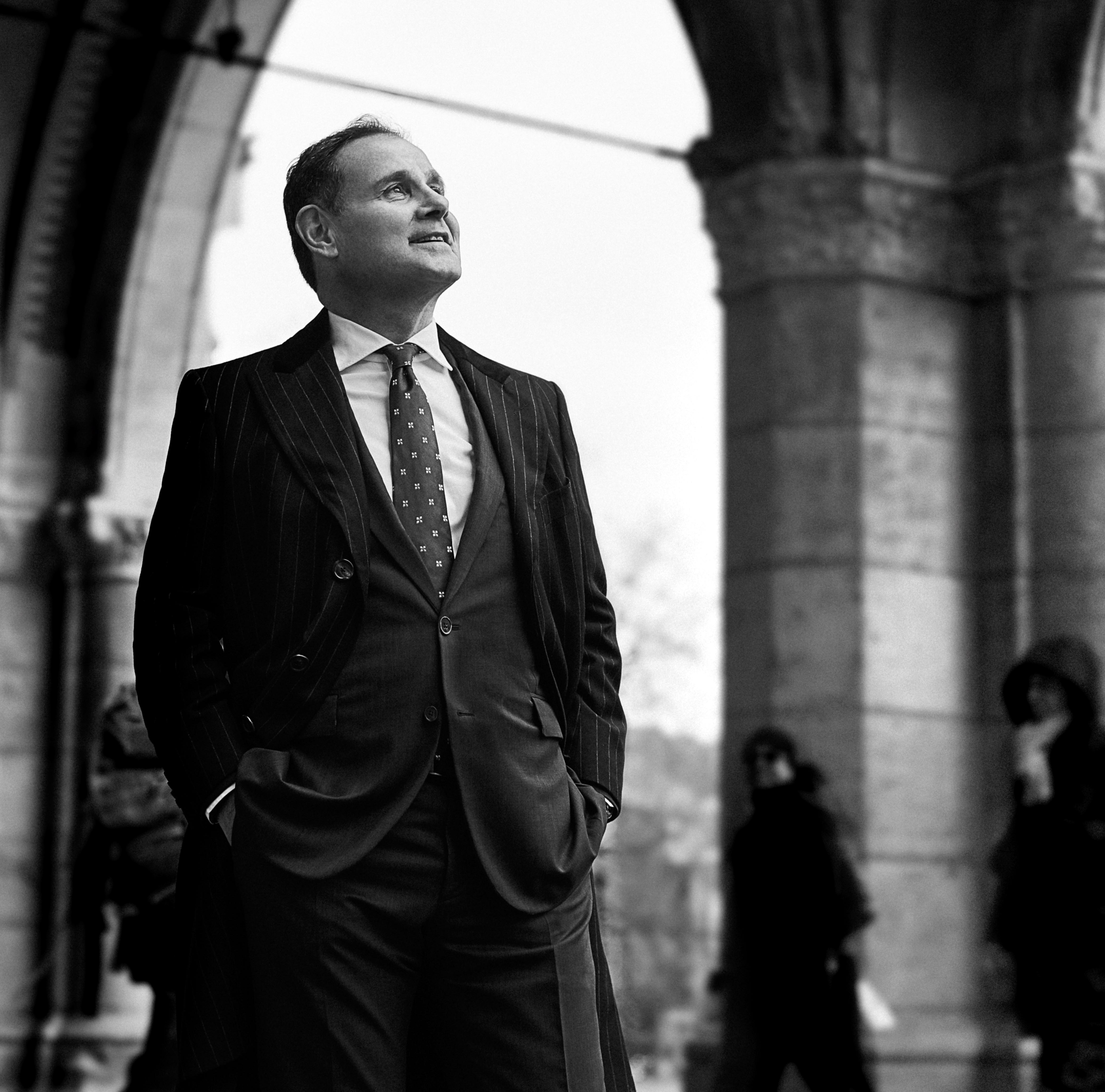



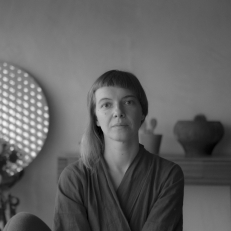
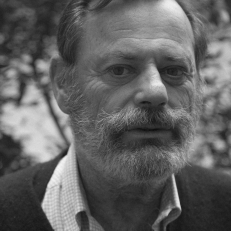
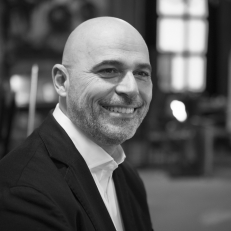
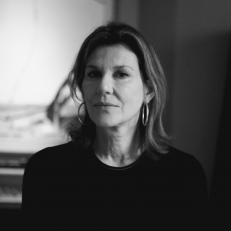
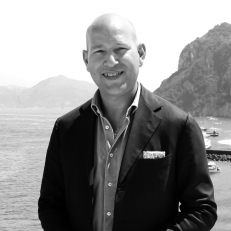
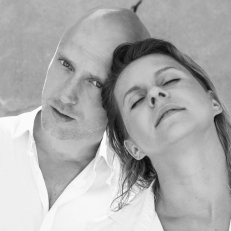
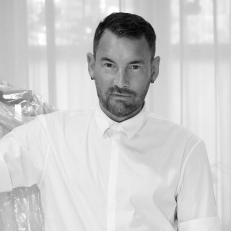
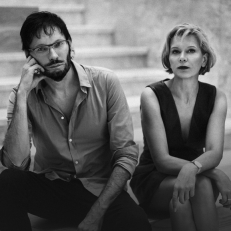
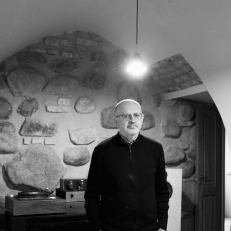
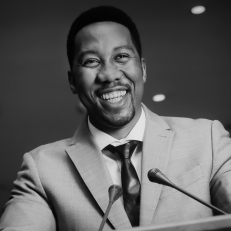


Add a comment